- 0086-571-85302990
- sales@greenskybio.com
Benefits of Natural Grape Seed Extract in Cattle Feed.
2024-11-13

Introduction
In recent years, the use of natural Grape Seed Extract in cattle feed has been on the rise. This trend is not accidental but is driven by the numerous benefits that this extract offers. Grape Seed Extract is a rich source of bioactive compounds that can have a profound impact on the health and productivity of cattle. It is derived from grape seeds, which are by - products of the wine - making industry. Instead of being discarded, these seeds are now being harnessed for their potential in animal nutrition.
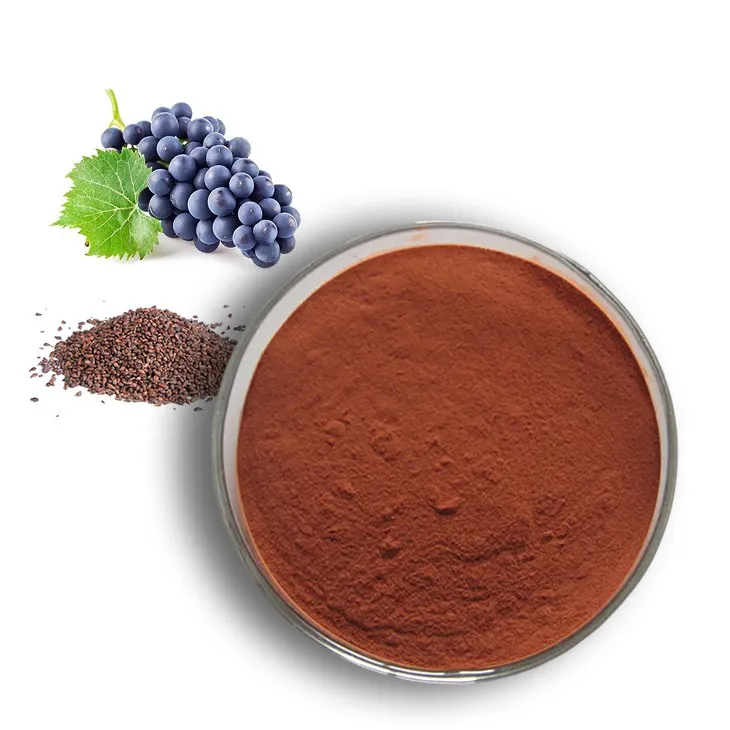
Benefits for Cattle Health
Modulating Gut Microbiota
One of the most important aspects of cattle health is the state of their gut microbiota. A healthy gut microbiota is essential for proper digestion and absorption of nutrients. Grape Seed Extract has been shown to play a significant role in modulating the gut microbiota of cattle.
- It contains polyphenols such as proanthocyanidins. These compounds have antimicrobial properties that can help in controlling the growth of harmful bacteria in the gut. For example, they can inhibit the growth of Escherichia coli and Salmonella species, which are known to cause diseases in cattle.
- At the same time, grape seed extract can promote the growth of beneficial bacteria like Lactobacillus and Bifidobacterium. These bacteria are involved in the fermentation of dietary fiber, producing short - chain fatty acids (SCFAs) such as acetate, propionate, and butyrate. SCFAs are an important energy source for the cells lining the gut and also help in maintaining the integrity of the gut barrier.
Enhancing Immune Function
A strong immune system is crucial for cattle to resist diseases. Grape seed extract can contribute to enhancing the immune function of cattle in several ways.
- The polyphenols in the extract have antioxidant properties. They can scavenge free radicals in the body, reducing oxidative stress. High levels of oxidative stress can suppress the immune system, so by reducing it, grape seed extract helps the immune system to function more effectively.
- It also has anti - inflammatory effects. Inflammation is a natural response of the body to injury or infection, but chronic inflammation can be harmful. Grape seed extract can modulate the immune response to prevent excessive inflammation, allowing the immune system to focus on fighting off pathogens.
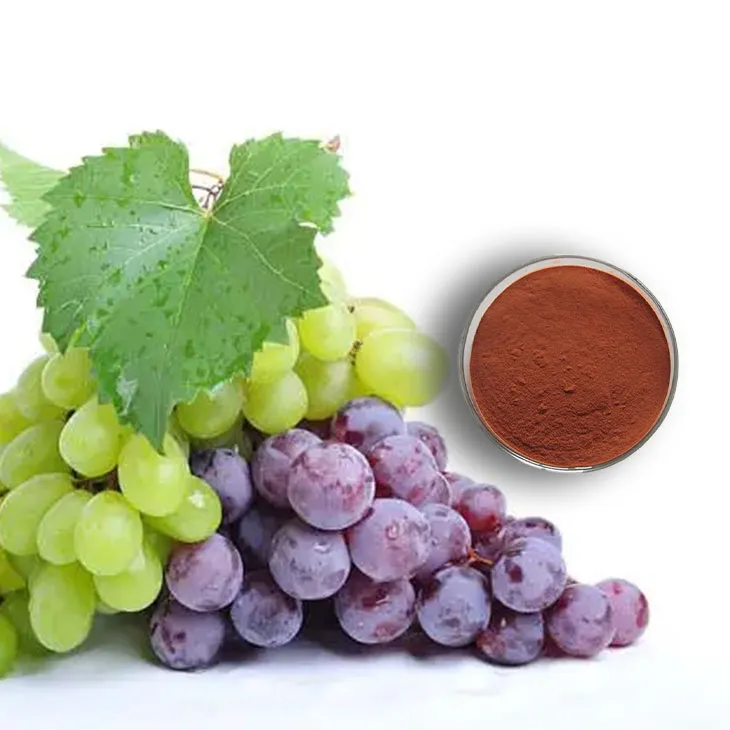
Benefits for Feed Quality
Natural Preservative
Maintaining the quality of cattle feed is of utmost importance. Grape seed extract can act as a natural preservative in feed.
- It contains compounds that can inhibit the growth of molds and yeasts. Moldy feed can be a source of mycotoxins, which are extremely harmful to cattle. By preventing mold growth, grape seed extract helps to ensure that the feed is safe for consumption.
- Additionally, it can slow down the oxidation of fats in the feed. Oxidized fats can reduce the palatability of the feed and also lead to the formation of harmful compounds. Grape seed extract helps to maintain the freshness and nutritional value of the feed for a longer period.
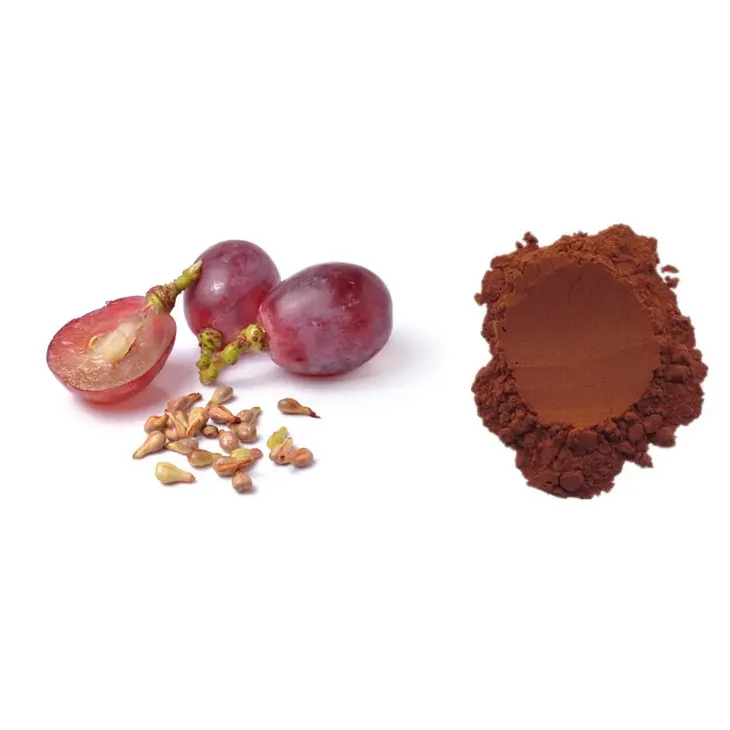
Environmental Benefits
Reducing Methane Production
Methane is a significant greenhouse gas, and cattle are one of the major sources of methane emissions through enteric fermentation. However, cows fed with grape seed extract - supplemented feed may produce less methane.
- The modulation of the gut microbiota by grape seed extract can lead to changes in the fermentation patterns in the rumen. This can result in a more efficient use of feed, reducing the amount of methane produced as a by - product.
- Some studies suggest that the polyphenols in grape seed extract may directly interact with the rumen microbes involved in methane production, inhibiting their activity. This not only benefits the environment but also has implications for sustainable cattle farming.
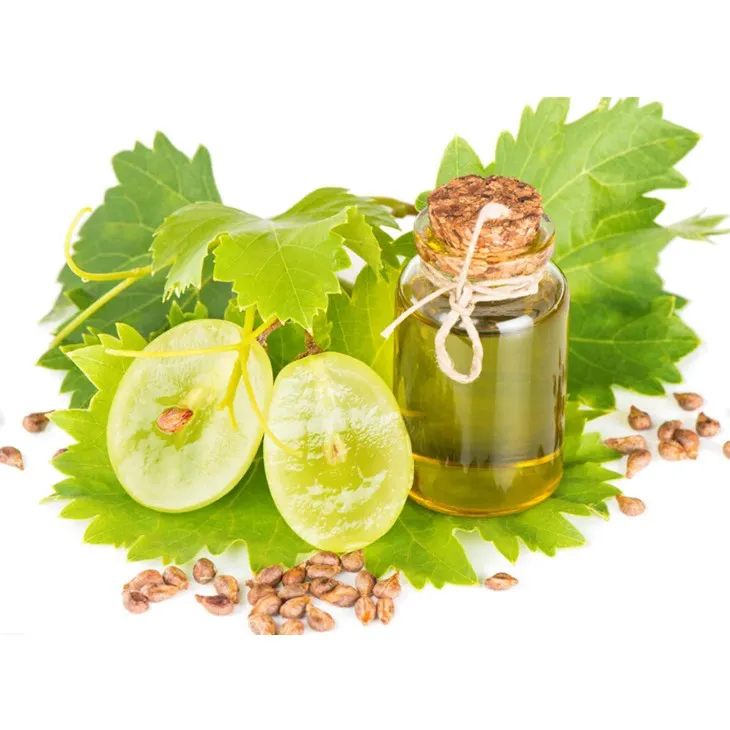
Conclusion
In conclusion, the use of Natural grape seed extract in cattle feed offers a wide range of benefits. It has a positive impact on cattle health by modulating the gut microbiota and enhancing the immune function. It also improves feed quality as a natural preservative. Moreover, from an environmental perspective, it can reduce methane production. As the demand for sustainable livestock production grows, the potential of grape seed extract in cattle feed is likely to be further explored and exploited. However, more research is still needed to fully understand the optimal dosage, long - term effects, and potential interactions with other feed components.
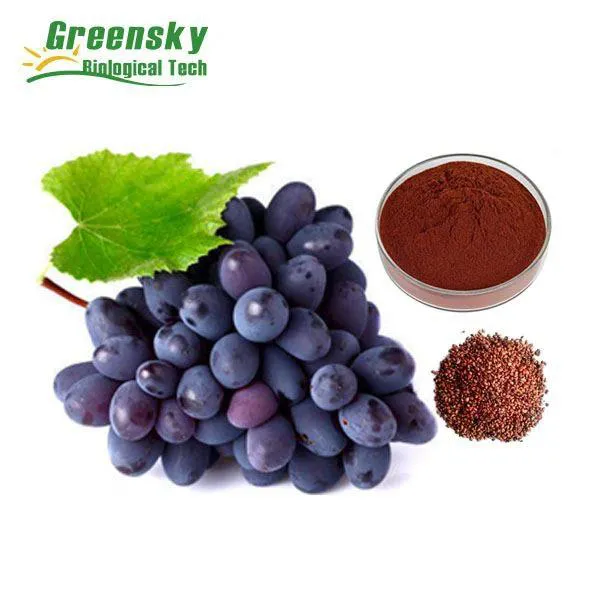
FAQ:
1. What are the main substances in Natural grape seed extract that are beneficial to cattle?
Natural grape seed extract contains various beneficial substances. One of the key components are polyphenols. These polyphenols play important roles in modulating the gut microbiota and acting as antioxidants in the cattle's body. However, there are also other bioactive compounds within the extract that are still being studied for their full range of effects on cattle health.
2. How exactly does grape seed extract modulate the gut microbiota of cattle?
The polyphenols in grape seed extract can interact with the bacteria in the gut. They may selectively promote the growth of beneficial bacteria while inhibiting the growth of harmful ones. For example, some studies suggest that they can enhance the growth of certain lactic acid - producing bacteria which are important for a healthy gut environment. This modulation leads to better digestion and nutrient absorption in cattle.
3. Can grape seed extract completely replace traditional preservatives in cattle feed?
While grape seed extract can act as a natural preservative in cattle feed, it may not be able to completely replace traditional preservatives at present. It has the ability to prevent spoilage to some extent by inhibiting the growth of mold and some bacteria. However, traditional preservatives are often more effective in large - scale and long - term storage situations. More research is needed to improve the preservative capabilities of grape seed extract to potentially fully replace traditional ones.
4. How much less methane do cows produce when fed with grape seed - supplemented feed?
The amount of methane reduction can vary depending on multiple factors such as the type of cattle, the amount of grape seed extract in the feed, and the overall diet composition. Currently, research shows that there can be a significant reduction, but it is difficult to give an exact percentage. Some studies have reported reductions in the range of 10 - 30% under certain experimental conditions, but more field - based research is required for more accurate and generalizable data.
5. Are there any potential negative effects of using grape seed extract in cattle feed?
So far, there are no major known negative effects of using grape seed extract in cattle feed. However, if used in excessive amounts, it could potentially disrupt the normal gut balance in an unforeseen way. Also, the cost of adding grape seed extract to feed might be a concern for some farmers. But overall, when used appropriately, it has shown many positive effects on cattle health and the environment.
Related literature
- The Role of Grape Seed Extract in Animal Nutrition"
- "Beneficial Effects of Natural Additives in Cattle Feed: A Focus on Grape Seed Extract"
- "Grape Seed Extract and its Impact on Gut Microbiota in Ruminants"
- ▶ Hesperidin
- ▶ citrus bioflavonoids
- ▶ plant extract
- ▶ lycopene
- ▶ Diosmin
- ▶ Grape seed extract
- ▶ Sea buckthorn Juice Powder
- ▶ Beetroot powder
- ▶ Hops Extract
- ▶ Artichoke Extract
- ▶ Reishi mushroom extract
- ▶ Astaxanthin
- ▶ Green Tea Extract
- ▶ Curcumin Extract
- ▶ Horse Chestnut Extract
- ▶ Other Problems
- ▶ Boswellia Serrata Extract
- ▶ Resveratrol Extract
- ▶ Marigold Extract
- ▶ Grape Leaf Extract
- ▶ blog3
-
Cranberry Plants and Skin - care Products.
2024-11-13
-
Coconut Water Powder
2024-11-13
-
Garcinia Cambogia Extract
2024-11-13
-
Pueraria Lobata Extract
2024-11-13
-
Epimedium extract powder
2024-11-13
-
Cassia Seed Extract
2024-11-13
-
Grape Seed Extract
2024-11-13
-
Mango flavored powder
2024-11-13
-
Lycopene
2024-11-13
-
Selenium yeast
2024-11-13
-
Nettle leaf extract
2024-11-13





















